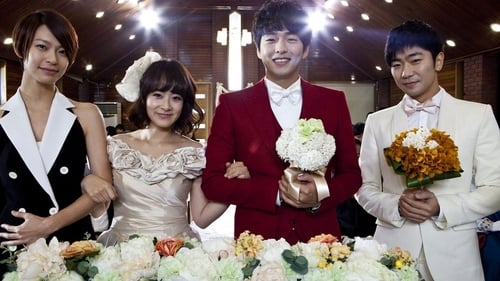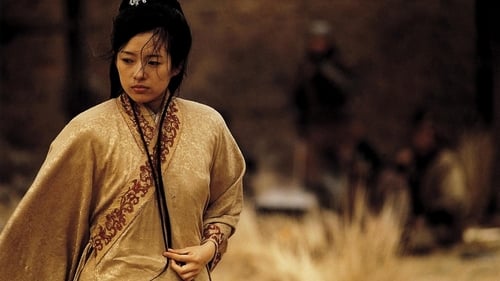
Producer
In the late 1960s and early 1970s, girls aged 12 to 16 began working at Pyeonghwa Market. Running sewing machines, they also study the Labor Standards Act under the tutelage of Jeon Taeil. On September 9, 1977, they were imprisoned fighting against the government that closed labor classes, shouting, “The next Jeon Taeil will be a woman!” Now the middle-aged girls recall the memories of the life of female workers, social contempt, and stigma. Watching the sunrise in the East Sea, they admire, ‘How fair it is because everybody can see it.’ Sewing Sisters rewrites the history of maledominated Korean labor struggles in the 1970s with news interviews of female workers belonging to the Cheonggye Clothes Union.

Director
In the late 1960s and early 1970s, girls aged 12 to 16 began working at Pyeonghwa Market. Running sewing machines, they also study the Labor Standards Act under the tutelage of Jeon Taeil. On September 9, 1977, they were imprisoned fighting against the government that closed labor classes, shouting, “The next Jeon Taeil will be a woman!” Now the middle-aged girls recall the memories of the life of female workers, social contempt, and stigma. Watching the sunrise in the East Sea, they admire, ‘How fair it is because everybody can see it.’ Sewing Sisters rewrites the history of maledominated Korean labor struggles in the 1970s with news interviews of female workers belonging to the Cheonggye Clothes Union.

Producer
On September 7, 2013, two men are married at Kwangtong Bridge. They say their vows in front of Seoul citizens, and showcase a small musical performance they had prepared. As the happy celebration reaches its climax, the hall is bombarded with trash and vulgar profanity. Despite this, the two men raise their voices to say they are happy, and the deserved and natural wedding ends with blessings. The film shows the crazy behind-the-scenes actions surrounding the controversial wedding between Generation Blue Films president Kim Jho Gwang-soo and Rainbow Factory president Dave Kim. The wedding is for a bigger cause, but the preparation doesn’t differ much from that of any other wedding, and unfolds quite pleasantly. Despite the event’s myriad social repercussions, there are still thousands of steps to take, and the grooms have a fight and make up for before the wedding. Of course! It’s a wedding! (KONG Youngmin)

Line Producer
Stas is a young third generation Koryo-saram, a member of the Korean minority in Central Asia that was deported from the Russian Far East by Stalin. He and his three friends Kasoy, Shin and Said try to escape from the grim life in Tashkent, the Uzbek capital, and one day, they also try heroin. Then, however, Kasoy gets killed by a gang. 6 years later, Shin has emigrated to South Korea, Said has become a drug addict and Stas is now a police officer. Said commits suicide by overdosing and Stas, who has has since then also become a drug addict, decides to turn over a new leaf. He follows Shin to South Korea, but can this be Hanaan for him, the Promised Land?

Producer
Corea del Sur /// Min-su, un chico homosexual, y Hyo-jin, una chica lesbiana, son médicos en el mismo hospital. Min-su quiere salir del entorno familiar y ser libre, mientras que Hyo-jin quiere adoptar a un bebé y criarlo en pareja. Ambos deciden que la mejor manera de hacer realidad sus sueños es casarse, parecer una pareja perfecta y disfrutar de su vida con sus respectivas parejas. Pero los padres de Min-su irrumpen de forma imprevista y la doble vida de Hyo-jin con su pareja pone en peligro la farsa.

Executive Producer
Año 1375. China está dominada por el caos debido a los enfrentamientos entre las dinastías Yuan y Ming. La dinastía Koryo envía una delegación de diplomáticos y soldados como emisarios de buena voluntad para ofrecer la paz al nuevo gobierno chino representado por los Ming. Pese a ello, la delegación será acusada de espionaje y enviada al exilio a un lejano desierto. Por el camino será atacada por tropas de los Yuan...

Executive Producer
With the new millenium, the U.N. human rights committee proposes the first Prisoner's World Cup, putting forth the slogans of Liberty, Equality, and Harmony. Corrections wardens across Korea are thrown into a dilemma over whether to let their prisoners participate or not. The Hope Team is one of the most unlikely soccer teams in the world with a total of 75 previous convictions and an average of 6 for each player. With promises of leaves and reduced sentences, the team members are motivated to the hilt. They pool their various criminal talents to play, fight, and poison their way to the finals despite a prejudiced referee and two of the team's members having been bought off by the opposing team. But when their leader, the only condemned man among them, breaks out of jail, the team is thrown into chaos and they learn some more about hope.

Producer






